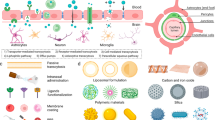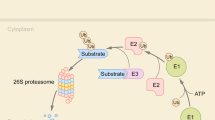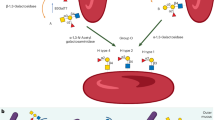Abstract
THE globulin permeability factors obtainable from the serum of man1, guinea pig2,3, rat4 and rabbit4 appear to be proteases because they are highly active on vascular endothelium—on a molar basis, they are 60–2,000 times as active as histamine, itself a potent permeability factor5; and because they are readily inhibited by prior treatment in vitro with the trypsin inhibitors from soya bean, lima bean and bovine pancreas. The action of these inhibitors, however, is apparently very rapid, a mixture of factor and inhibitor only 1 min. old being inactive when injected into the skin of animals with circulating pontamine blue4,7. Consequently, it is impossible to distinguish inactivation of a protease permeability factor in vitro from inactivation of a protease newly activated in vivo. Moreover, even the best preparations of permeability factors also contain known serum proteases, and so far no enzyme substrate has been found which is hydrolysed by serum fractions in strict proportion to their content of permeability factor.
This is a preview of subscription content, access via your institution
Access options
Subscribe to this journal
Receive 51 print issues and online access
$199.00 per year
only $3.90 per issue
Buy this article
- Purchase on Springer Link
- Instant access to full article PDF
Prices may be subject to local taxes which are calculated during checkout
Similar content being viewed by others
References
Mill, P. J., Elder, J. M., Miles, A. A., and Wilhelm, D. L., Brit. J. Exp. Path., 39, 343 (1958).
Wilhelm, D. L., Miles, A. A., and Mackay, M. E., Brit. J. Exp. Path., 36, 82 (1955).
Wilhelm, D. L., Mill, P. J., and Miles, A. A., Brit. J. Exp. Path., 38, 446 (1957).
Wilhelm, D. L., Mill, P. J., Sparrow, E. M., Mackay, M. E., and Miles, A. A., Brit. J. Exp. Path., 39, 228 (1958).
Miles, A. A., and Miles, E. M., J. Physiol., 118, 228 (1952).
Becker, E. L., in Henry Ford Hospital International Symposium: “The Mechanisms of Hypersensitivity” (in the press).
Miles, A. A., and Wilhelm, D. L., Brit. J. Exp. Path., 36, 71 (1955).
Aldridge, W. N., Ann. Rep. Chem. Soc., 53, 294 (1956).
Lineweaver, H., and Murray, C. W., J. Biol. Chem., 171, 565 (1947).
Margolis, J., Nature, 181, 635 (1958).
Myers, D. K., Schotte, A., and Mendel, B., Biochem. J., 60, 481 (1955).
Spector, W. G., and Willoughby, D. A., Nature, 182, 949 (1958).
Author information
Authors and Affiliations
Rights and permissions
About this article
Cite this article
BECKER, E., WILHELM, D. & MILES, A. Enzymic Nature of the Serum Globulin Permeability Factor. Nature 183, 1264–1265 (1959). https://doi.org/10.1038/1831264a0
Issue Date:
DOI: https://doi.org/10.1038/1831264a0
This article is cited by
-
The effect of induced hypomagnesaemia and hypermagnesaemia on the erythrocyte magnesium concentration in cattle
Veterinary Research Communications (1988)
-
Isolation of Two Permeability Globulins from Human Serum
Nature (1963)
-
Spreading Activity in Bovine Udder Extract
Acta Veterinaria Scandinavica (1960)
Comments
By submitting a comment you agree to abide by our Terms and Community Guidelines. If you find something abusive or that does not comply with our terms or guidelines please flag it as inappropriate.



